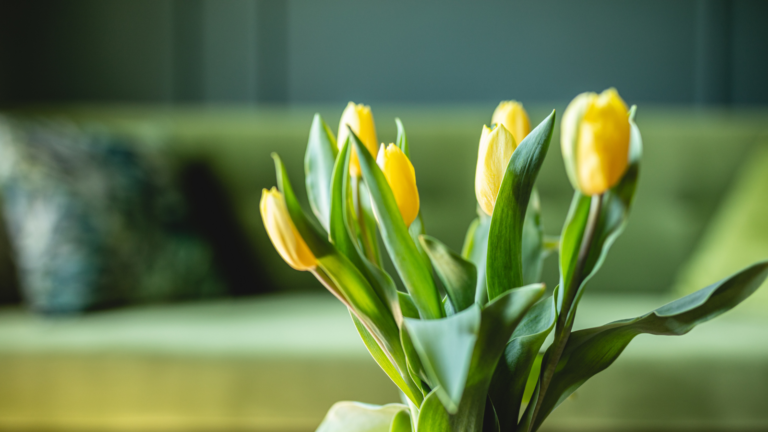What is home staging?
Home staging is the process of preparing your property for visits from home shoppers. It “sets the stage” for potential buyers to visualize your home as their own. Staging helps them connect with your house emotionally. That way they’re more likely to fall in love and make an offer. There’s always the option not to stage.
A major goal of staging is to highlight the positive aspects of your home while minimizing any negatives. In addition, creating a compelling aesthetic for stunning photos is key. Impactful photographs are especially important these days, as 99% of buyers between the ages of 23 and 56 house hunt online. And 95% of all buyers do so. The listing photos are your best chance to make a great first impression. Staging your home ensures that your photos don’t present it as drab and empty, but instead as well-designed, modern, and desirable.
The idea of staging is to present your home as a beautiful, move-in-ready property that a buyer start enjoying immediately after purchase. It involves cleaning, decluttering, painting, furnishing, and redecorating. The cost varies widely based on several factors. The square footage of your home. The number of rooms you want to stage. The quality of the staging items. And the services you decide to hire—but it’s worth it. Here’s why.
Stage your home, and you might have to decide.
According to the International Association of Home Staging Professionals, staged homes sell for up to 20% more than their non-staged competition. The current median sale price for homes in the U.S. is just over $385,000. Twenty percent of that is $77,000—which is far more than the cost of staging a home.
Additionally, depending on your market, staged homes sell between 3 and 30 times faster than unstaged homes. If your goal is a fast sale for the most money, staging is for you.
Home staging in 2023
Remember that the goal is to present a gorgeous, modernized version of your home to buyers. So outdated decor in your staging is a no-go.
After years of cool grays and austere whites, color is back for 2023. And you have options. Try deep, earthy tones for a rich, grounded experience. Opt for warm neutrals and soft blues to build a sense of comfort and security. You can also range into bold tones like sunflower yellow or Pantone’s Color of the Year, Viva Magenta. A very bold choice.
You can use your favorite colors in traditional ways by incorporating them into decor items or painting the walls—or branch out. Try colored cabinets or appliances. Paint the inside of your bookshelves. Or if you’re feeling really bold, try a painted ceiling.
Whatever you choose, it’s time to walk away from all-white walls and decor and create a space that’s vibrant and full of life. Homes have personality, and staging is the moment to express that.
Following cold whites and grays out the door are the harsh angles of the 20-teens. Severe straight lines are no longer the way to create timeless appeal.
Instead, professional stager Krisztina Bell suggests leaning into with round shapes, soft edges, and curvy contours. This not only puts your home on the aesthetic forefront. It also creates a super comfortable and inviting space for potential buyers to fall in love with your home.
How do you do it? First, if you have it, play up the curvy architecture in your house. If you have an arched entryway, rounded fireplace, or circular window, make it a focal point.
No arches to be found? No problem. You can successfully utilize this interior design trend with soft and curvy seating, cornerless tables, round rugs, and organically-shaped accessories.
Bring on the drama
Joining with bold color choices and a departure from strict minimalism are creativity, moodiness, and muchness in interior design. What’s the goal?
Drama.
The best 2023 interior design has a flair for the dramatic. Striking contrast, exciting feature walls, and sculptural light fixtures are all on the list of staging items that take home shoppers’ breaths away.
The idea is to bring depth and richness to your design with powerful variation and visual interest.
In the years following the height of the pandemic, we’ve collectively grown more connected to the natural world. This phenomenon has shown itself in our increased investment in outdoor spaces at home. It also appears in increasingly-popular interior design trends. These include the expanded use of natural and rustic materials. Stone and wood finishes and living plants, as well as aesthetic design choices. These range from literal natural motifs like leaves and flowers to the abstract in lush and earthy paint hues and the organic shapes of furniture.
When you stage your home, you can incorporate this ultra-modern trend by integrating live plants, organic shapes, and natural materials into your home design. The result will leave buyers ready to pounce with an offer the first chance they get.
After that’s settled you’ll want to decide whether or not you want open houses. If so, learn what not to do to make your open houses successful.

Pingback: 7 Spectacular Outdoor Projects to Boost Home Value